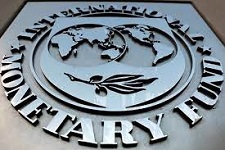Chaired by Mr. Fikadu Digafe, Vice Governor and Chief Economist of the National Bank of Ethiopia, the International Monetary Fund (IMF) AFRITAC East Steering Committee completed a 1.5-day hybrid 24th Steering Committee Meeting and Seminar held in Dar es Salaam, Tanzania from July 13 – 14, 2022.
AFRITAC East is a collaborative venture between the International Monetary Fund (IMF), the recipient countries, and bilateral and multilateral development partners. It originated from the IMF’s response to African leaders call on the international community to increase technical assistance (TA) to Africa and focus it more sharply on capacity building. AFRITAC East provides TA and training to Eritrea, Ethiopia, Kenya, Malawi, Rwanda, South Sudan, Tanzania (including Zanzibar), and Uganda.
AFRITAC East is hosted by the Tanzanian authorities in Dar es Salaam and works with Eritrea, Ethiopia, Kenya, Malawi, Rwanda, South Sudan, Tanzania, and Uganda, according to the press statement from the IMF. The Netherlands, the United Kingdom, European Union, Norway, China, Germany, and Switzerland, support the center, alongside the COVID-19 Crisis CD Initiative, IMF and member countries.
The Steering Committee celebrated the 20-year anniversary of the center and recognized some of its many successes in strengthening capacity and institutions in the region through providing sustained hands-on support and peer learning since its establishment in April 2002.
The committee also endorsed the work program for FY2023 and contributed to peer learning through active participation in the six seminars during the event. The Steering Committee welcomed the publication of the anniversary booklet that illustrates the example of achievements of the center and lessons learnt over the past 20 years, as well as the anniversary seminar series co-organized by the center and member countries.
The committee appreciated the continued and flexible support of the center during the virtual environment and looking forward to enhanced engagement when travel gradually resumes as COVID-19 conditions improve in the East African region.
Member countries noted that the COVID-19 pandemic and war in Ukraine had slowed economic activities while raised the cost of living, leading to challenging policy choices. In addition, the virtual world imposed by the pandemic posed challenges for receiving support from the center, particularly in countries with weak internet connection.
In this context, the Steering Committee endorsed the FY2023 work program and budget, which includes increased activities, particularly in-person engagement. The committee also welcomed the addition of medium-term revenue strategy and debt management advisors to the center and requested more support on managing the risks from climate change.
The Steering Committee welcomed member countries’ agreement reached in January 2022 on the distribution of member contributions in Phase V of AFRITAC East, noting that timely member contributions not only provide the needed funding but also demonstrate member ownership.
The committee extended its appreciation to the development partners for their continuous support of the center which has been pivotal in capacity development in the region. The thematic seminar on IMF work on climate change was well received. Countries actively participated in the discussion.
In particular, Rwanda shared experience in integrating climate resilience goals in its PFM processes especially at an early planning stage. The short peer-learning seminars promoted lively discussions. On the monetary and financial sector issues, Malawi and Rwanda shared experiences on promoting banking sector resilience through implementing Basel II Pillar II, while Kenya led the discussion among a number of AFRITAC East countries, including the East Africa Community Secretariat, on progress and challenges in modernizing monetary policy frameworks.
On fiscal reform, Uganda shared experience in implementing the medium-term revenue strategy, while Uganda and Rwanda shared their experience in sharpening public financial management tools for a post COVID-19 recovery.
On statistics, Kenya shared its experience on improving macroeconomic statistics, and Uganda shared progress and challenges on transitioning the macroeconomic framework from GFS 1986 to 2014. With participants from central banks, ministries of finance, revenue authorities, and statistical agencies from the member countries, the seminars stimulated discussions on linkages among the work of different authorities, a feature well appreciated by the Steering Committee members, including development partners.

